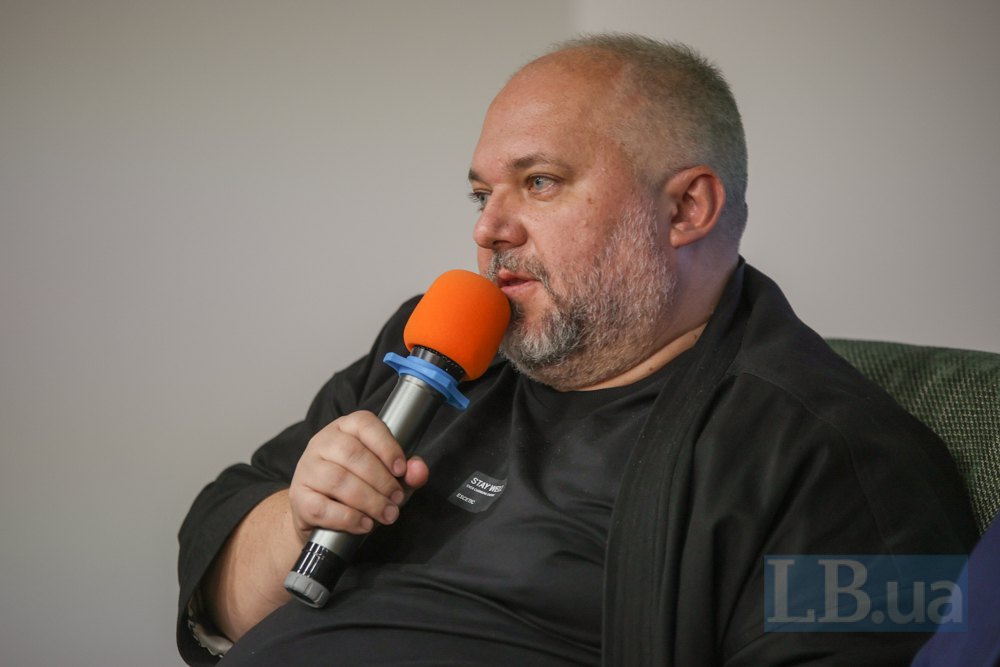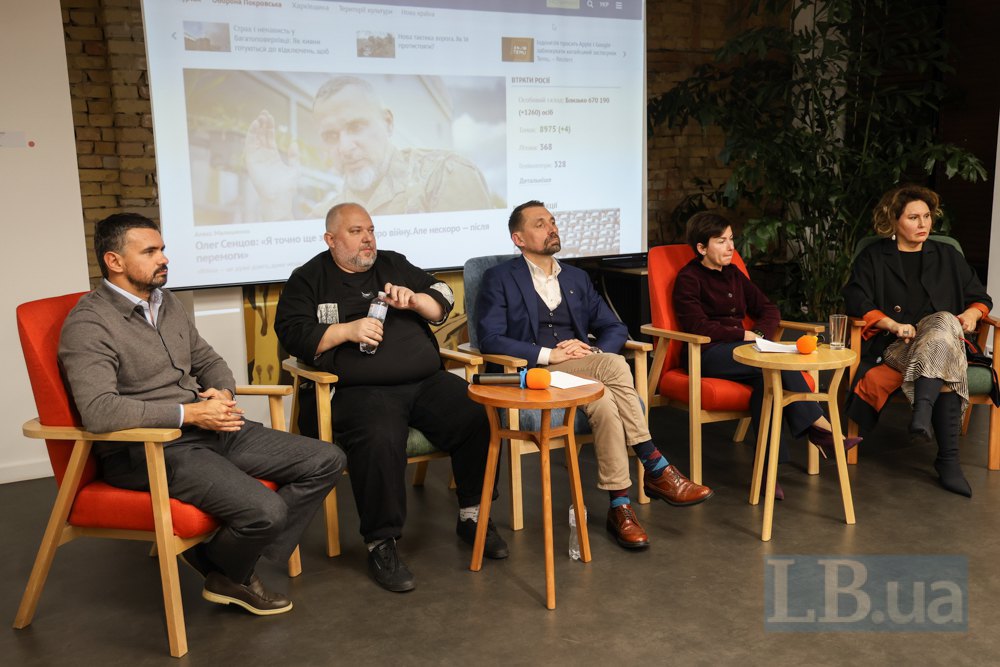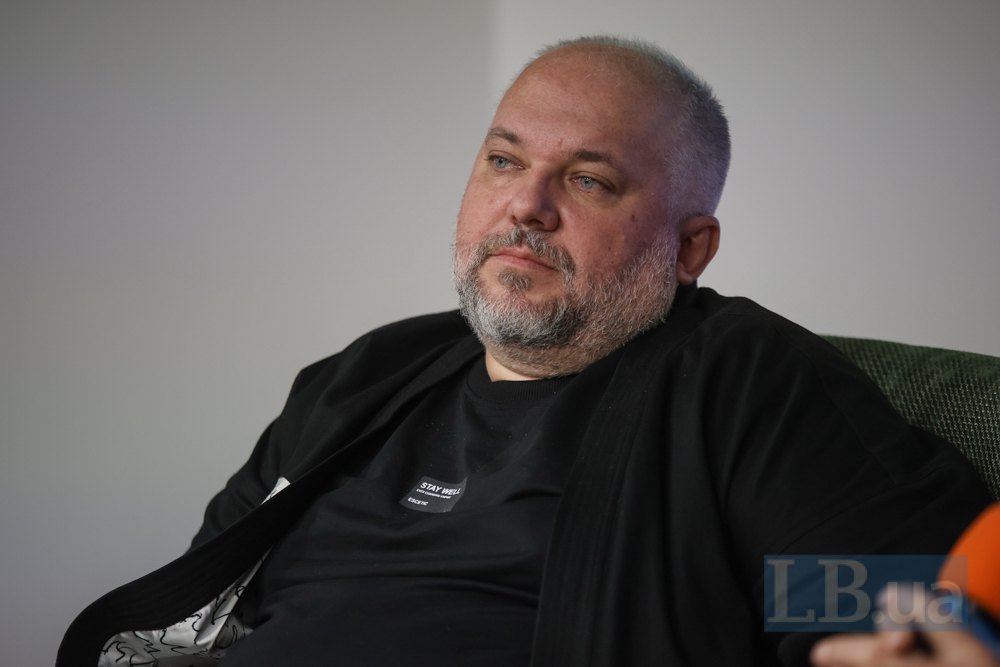
‘In times of war,’ says Holenko, ‘fortunately for theatre people are looking for ways to recharge their batteries. And theatre is alive, and the audience comes for that.’
‘Plus, this space began to open up in a new way. It began to carry some new meaning. People needed it during the war. They are really working through their traumas. And if this is done in an adequate form, it is perceived by the viewer,’ adds the director.In addition, he notes, incredible layers of Ukrainian culture and the executed revival are opening up for the majority of society, and people are interested in all of this. This, in particular, pushes the theatre as an institution to change, to get out of the post-colonial heritage and archaism.
Maksym Holenko explained how this happens using the example of his theatre, the Mariya Zankovetska Theatre in Lviv.
‘In Lviv, we have entered the most closed, closed space and are trying to open it, to work according to adequate rules, the way a modern theatre should do - to open a normal staffing schedule, to have project grant managers, without whom, for example, theatre is impossible, to gather the best artists who remained in our space, to bring someone back from abroad so that people understand that it is important for them to work in their country now, that it makes sense,’ said Holenko.

But the main thing is that the repertoire is being rebuilt, with contemporary prose and themes that reflect reality.
‘We have opened several stages so that we can talk about this, that, and the other. In addition to the classics, there is contemporary prose - Zhadan, Skryabin, Horikha Zernya, in particular, Dotsya, which speaks about the war. There are several performances of contemporary drama. The next premiere, which, for example, will go to Finland, is about how Russians steal our children. Oleg Mikhailov wrote it. That's why the theatre is still trying to slowly adapt,’ the artist notes.
In addition, Maksym Holenko emphasises that the Ukrainian theatre space has begun to open up to colleagues from abroad.
‘For example, a German team came to the Zankovetska theatre. A year ago it would have sounded very strange. But we attracted the interest of one of the leading German directors, Jan Hockl, who decided that at this time he needed to be in this space and make a theatrical product in Ukraine - about Josef Roth, an Austrian writer of Jewish origin who was born in Brody, lived in Galicia and died in Paris. A man who unites us and Europe. A German team comes and puts on a play with Ukrainians that is very meaningful. This is the first stage.
The next stage is when a few more European theatres join Zankovetska's theatre - Deutsches Theater (Germany - Ed.), Burgtheater (Austria - Ed.),’ said the director of the Lviv theatre.
This, in particular, will help promote Ukrainian theatre abroad, where the influence of Russian culture is still acutely felt, said Maksym Holenko.

‘Where Ukrainian theatres fail to reach or Ukrainian products fail to reach, Kirill Serebrennikov appears and says ‘not everything is so clear’. Because Gazprom's money and power are not equal, I'm sorry to say. That's why, I think, first of all, we need to be present wherever we can,’ says the director, ’This is both a state and a private initiative. We, for example, work with independent grand managers, and we also try to hire people to help the theatre travel and communicate with foreign artists and foreign institutions. But this should be a maximum and joint effort. We need to put all our efforts into this now.’
Finally, Maksym Holenko noted that he is guided by two principles in his work. The first is whether we have the right to do this at this time. The second is what sense it should make, what benefit it will bring to society and to victory.
‘And let's be honest, theatre is a very powerful, cool propaganda during the war. And we are ready to be this weapon,’ the director summed up.








